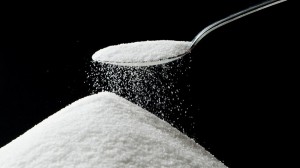A Southampton dietitian has told Wave 105 how many parents are unaware of just how much sugar is in supposedly “healthy” fruit drinks for children.
Priya Tew is offering mums and dads advice on healthy alternatives to make sure their children are not exceeding their recommend daily intake (RDA) of sugar.
It comes as a new study shows many fruit drinks for children are “unacceptably high” in sugar.
The research, published in the journal BMJ Open 24th March 2016, found that 42% of fruit juices, juice drinks and smoothies surveyed contained at least 19g of sugars, 5 tsp, this is almost a child’s entire maximum recommended intake per day.
Action on Sugar is asking for a reformulation programme to reduce sugar in children’s drinks by 50% in 5 years and restrict them to 150ml serving sizes. Only 6 products surveyed were found in 150ml servings, meaning children are likely to be consuming more.
“The research doesn’t surprise me. Although it [fruit juice] is high is natural sugar, it’s a very accessible form of sugar.
“I do think parents are unaware of how much added sugar there is in fruit juice and smoothies, and they’re seen as a healthy option. I would beg to differ on that. I think a healthy option for a drink for a child is water or milk, perhaps some no added sugar squash.
“If you’re going to give your child fruit juice then my advice would be to water it down, make it half juice and half water, and only have that as an occassional treat rather than a daily option.”
When processed into fruit juice drinks, the sugars (fructose) in the fruit cell walls are released as ‘free sugars’ which damage your teeth and provide unnecessary calories; you take in more calories without feeling full (i.e. A 200ml glass of orange juice can contain 3 oranges).
Co-author of the study Kawther Hashem, Registered Nutritionist and Researcher of Action on Sugar says: “It is highly concerning that many parents are still buying fruit juices and juice drinks for their children thinking they are choosing healthy products; children should be given as little juice as possible (maximum of 150ml/day).These juices rot children’s teeth and give children a ‘sweet tooth’ that will affect their general health in later life.
“What is more concerning are the products with added sugar and glucose-fructose syrup. We call on all manufacturers to stop adding more sugars to already sweet juices, particularly in children’s products and to restrict children’s drinks to only 150ml bottles/cartons.
“Our advice is to eat the fruit, don’t drink the juice. Juice should be an occasional treat, not an ‘everyday’ drink. These processed drinks are laden with sugars and calories and do not have the same nutritional benefits of fresh fruit and vegetables.”
